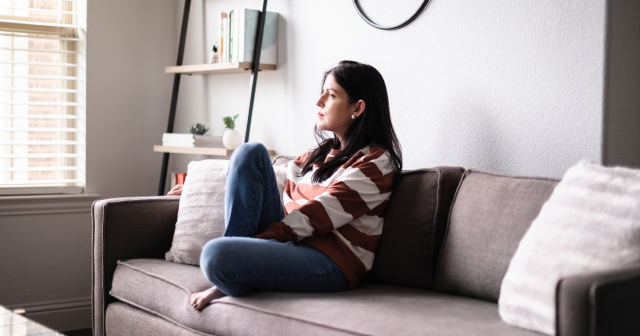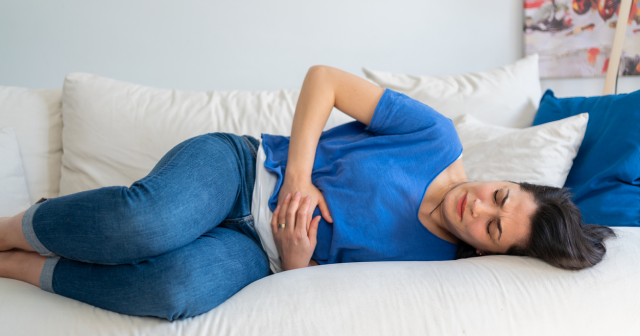Menopause and tiredness
Menopause is a natural part of ageing, when oestrogen levels decline and periods become less frequent, then stop altogether. This usually happens between the ages of 45 and 55, although it’s different for everyone.
Tiredness and fatigue are common complaints during menopause and can be a knock-on effect of other menopause symptoms.
Here we explain what causes menopause fatigue, what you can do about it and when to see a doctor.
What causes menopause fatigue?
Having trouble sleeping is a common perimenopause and menopause symptom, leaving you tired the next day. This is due to fluctuating hormone levels in your body, namely oestrogen and progesterone. The changing hormone levels are partly responsible for the sleep problems that can happen during this time, and can continue into post-menopause (after your periods have stopped).
Falling oestrogen can affect sleep because it plays a role in balancing the chemicals that control your sleep-wake cycle. It can also result in a higher body temperature, which can make it harder to sleep.
You might also lose sleep due to another common menopause symptom, night sweats, which are hot flushes that occur during the nighttime.
Another sleep problem that’s more common, possibly linked to falling hormones, is sleep apnoea. This is when your breathing stops and starts during sleep. Lots of people experience this sleep disorder during the perimenopause, menopause and beyond, with post-menopausal women two to three times as likely to have sleep apnoea compared with premenopausal women.
The effect of sleep apnoea is that you may feel very tired, find it difficult to concentrate, and have a headache upon waking up.
Menopause and anxiety
Anxiety is also a risk factor for poor sleep and something that many people experience during perimenopause and menopause. This, in turn, can be triggered by other menopause symptoms you may experience, such as hair loss and joint pain.
Read more about menopause and anxiety.
These symptoms can all come at a time in life when there are additional life stresses, such as ageing parents, children leaving home and career pressures. This combined with the hormonal changes that are happening to your body can leave you feeling fatigued.
What are the other causes of fatigue?
There are lots of possible reasons why you might be feeling tired or fatigued, aside from the menopause. Tiredness and fatigue can be a symptom of many health conditions and can also be a knock-on effect of a life event.
Potential causes of fatigue include:
- anaemia
- diabetes
- glandular fever
- underactive thyroid
- coeliac disease
- chronic fatigue syndrome
- restless legs syndrome
- depression
- anxiety
- stress
- not having a healthy, balanced diet
- too much exercise
- lack of rest or sleep – find out how to sleep better
If your tiredness or fatigue is due to a lifestyle factor, it might go away on its own once you have made some changes to your lifestyle. However, it’s important to see a doctor if you think it might be due to an underlying health condition.
How to beat menopause fatigue
Menopause fatigue can be a real drain on your energy levels and motivation. Thankfully, several things can help you overcome the exhaustion that occurs at this time of life.
Lifestyle changes can make a big difference. These include making sure you eat a healthy, balanced diet, getting enough rest and sleep, and engaging in relaxation techniques.
Caffeine, alcohol and spicy foods can trigger hot flushes for some people, as they can be disruptive to sleep patterns, so you might find it useful to cut down on the amount you consume. Smoking can also be a trigger of hot flushes.
Exercise is also a great way to beat some menopause symptoms, including fatigue. Try to engage in regular aerobic activity if you can, such as jogging or swimming, as this can be more effective in relieving menopause symptoms than less frequent bursts of more strenuous activity.
Hormone replacement therapy (HRT) may also be helpful in relieving menopause fatigue, as it’s used to treat many menopause symptoms that can be causing excessive tiredness. These include night sweats and mood swings.
Anxiety and depression are more common during menopause, and can all leave you feeling fatigued. Stress and anxiety can be relieved by lifestyle changes, although it’s important to see a doctor if you have symptoms that you feel are outside of your control.
It’s especially important to see a doctor if you think you may have depression, as this is a serious condition that requires treatment.
Vitamins for menopause fatigue
Vitamins play a key role in our energy levels. Some can be gained through diet, while some can be taken as supplements. The vitamins and minerals that are vital for energy are:
- b vitamins
- vitamin C
- iron
- folate
Read about supplements for other menopause symptoms.

When to see a doctor about menopause fatigue
Excessive tiredness and fatigue can be a sign of a serious underlying condition. It’s important to see a doctor if you:
- have a fever
- have lost a lot of weight
- have night sweats
- find lumps on your neck or chin (these could be swollen lymph nodes)
- have low mood or feel very anxious
- are waking up at night gasping for breath
- experience muscle or joint pain
- have recently travelled abroad or have had recent insect or tick bites
- feel your limbs are weaker or more numb
You should also see a doctor if it’s not going away or you’re not sure what caused it. Try our Smart Symptom Checker.
Key takeaways
- tiredness and fatigue are common during menopause
- fatigue is often caused by menopause symptoms such as night sweats and sleep problems
- lifestyle changes can help alleviate your fatigue
- vitamins linked to energy levels can also help
- see a doctor if you’re worried about feeling tired, as it could be due to an underlying condition and not linked to menopause
Want more tips on how to sleep like a baby? Try out our 28-day in-app sleep better plan for all the latest hacks on how to drift off more quickly and have better quality slumber. Currently available on iOS only.







